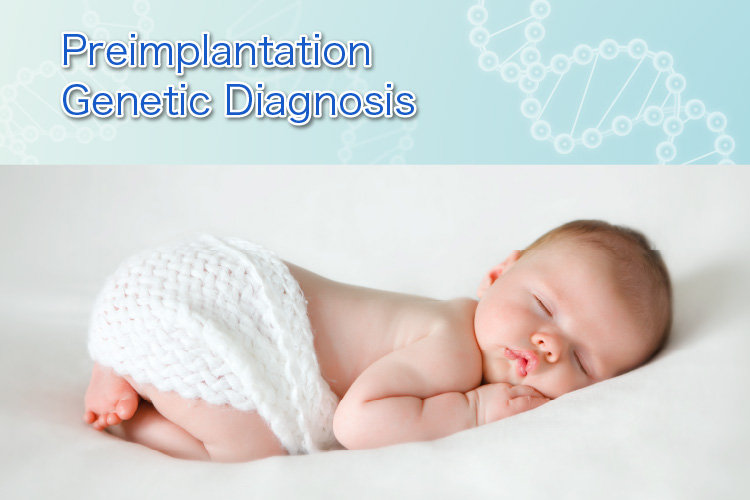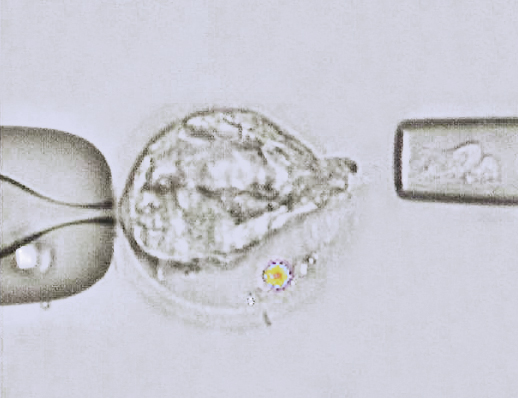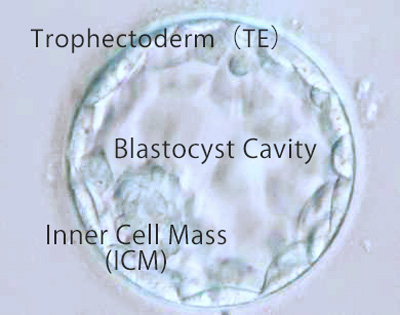

Preimplantation Genetic Diagnosis; PGD
What is PGD?
With PGD, it is possible to test embryos (fertilized eggs) and diagnose specific genetic disorders or chromosomal structural abnormalities. It can assist with recurrent miscarriage, which is sometimes caused by serious hereditary disease or chromosomal structural abnormality. A few cells from the trophectoderm, or TE cells (the part that will become the placenta in the future) of the blastocyst 5 to 7 days after fertilization is collected, and DNA is extracted, amplified and analyzed.
At our company, PGD (hereinafter referred to as this method) and PGS (examination of numerical abnormalities of chromosomes) can be performed using these cells. In order to acquire them, “TE Removal” must be performed during IVF at a medical institution.
〔 Diseases Handled 〕
Diseases that can be diagnosed include but are not limited to these, so please contact us for more information.
- Duchenne muscular dystrophy
- Becker muscular dystrophy
- Fukuyama type congenital muscle dystrophy
- Fukuyama muscular dystrophy
- Myotonia (tension) dystrophy
- Spinocerebellar degeneration
- Joubert Syndrome
- Huntington's disease
- Adrenoleukodystrophy
- Mucopolysaccharidosis type II
- Congenital ichthyosis
- Neurofibromatosis type I
- Retinoblastoma
- Alport syndrome
- Osteogenesis imperfecta
- Marfan syndrome
- Recessive genetic deafness due to GJB2 mutation
- Autosomal dominant cerebral aneurysm with subcortical infarction and leukoencephalopathy
- Charcot-Marie-Tooth disease
- Perinatal hypophosphatase
- Achondroplasia
- OTC deficiency
- Fabry disease
- Leigh encephalopathy
- Spinal muscular atrophy
- Pelizeus-Merzbacher
- Congenital myopathy
- Osteogenesis imperfecta type II
- Adult-onset osteodysplasia
- Restrictive dermopathy
- Ornithine transcarbamylase deficiency
- PDHC deficiency
- 5,10-Methylenetetrahydrofolate reductase deficiency
- Lesch-Nyhan syndrome
- Glutaric aciduria type II
- X-linked hereditary hydrocephalus
- Autoimmune disease
- malformation syndrome
- Chromosome abnormalities (may cause serious disease)
〔 Merits 〕
- This method reduces the likelihood of passing on congenital diseases caused by specific genetic or chromosomal abnormalities.
- By using PGS also, embryos that cannot produce a pregnancy can be excluded from treatment, reducing the miscarriage rate and helping you spend less time on fertility treatment.
〔 Demerits 〕
- By collecting TE cells, there is a possibility of damage to the blastocyst such as crushing and stunting. (However please note cell collection does not induce chromosomal abnormalities.)
- Since it takes about 4 weeks for the analysis results to be obtained, fresh embryo transfer is not possible when this method is used. Blastocysts from which TE cells have been collected are cryopreserved and thawed embryo transfer is performed based on the results of this method.
- Even if an embryo that does not show chromosomal abnormalities in PGD or PGS is transplanted and leads to pregnancy and childbirth, it is rare but possible that chromosomal abnormalities can be seen in the child. Possible causes for this include cases where the TE cells used for the test (the part that will become the placenta in the future) and the cells that become the fetus (ICM) have different chromosomes, or microdeletion that cannot be detected by NGS.
Method

TE biopsy

- Counseling and Pre-inspection.
※It is necessary to submit the target genetic test report in advance. Based on that, we will carry out a genetic test with saliva (person and family) and perform counseling if necessary. - Egg collection, intracytoplasmic sperm injection (ICSI), and blastocyst culture.
- TE Removal / cell biopsy.
- 4. Chromosome analysis.
About Results
The result report will be mailed to you.
If you have any questions, please contact us by phone or email.
Application
Please contact us for instructions tailored to your individual situation.
Inquiries │
We accept inquiries by email. Tokyo · Osaka │ O.G.M.S.

Preimplantation Genetic Diagnosis; PGD
english_help@ogms.biz
The email address may vary depending on the content of your inquiry. Please check the mail address on each service page.
There may be a delayed reply to inquiries received at night, weekends/holidays, winter and summer break.
It may take some time to reply depending on the nature of the inquiry.